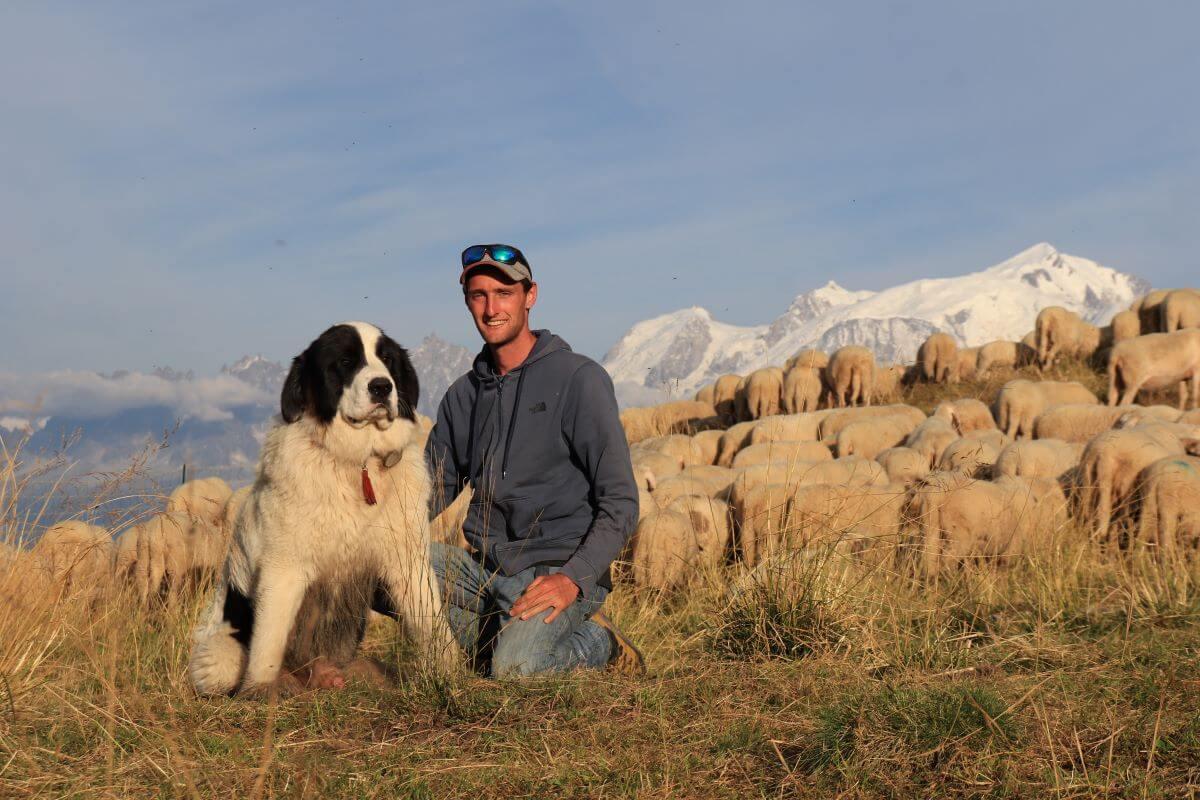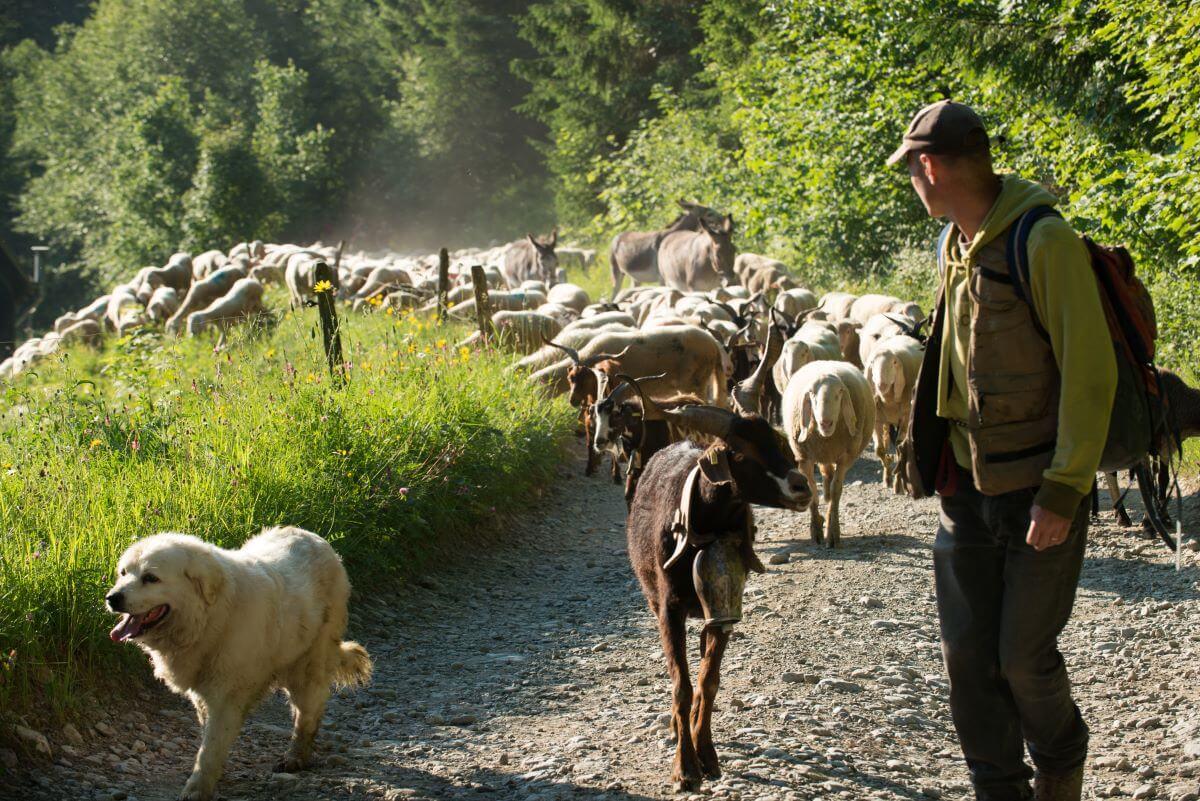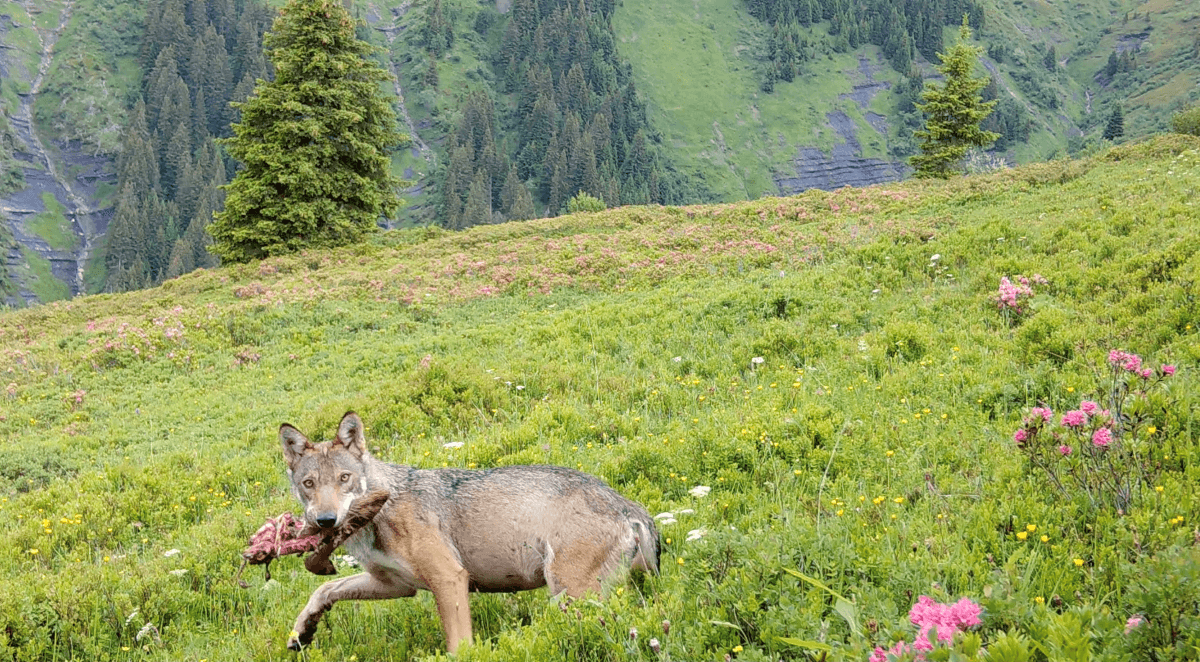Your contact,
Cyril Prevent
As a breeder and transhumant shepherd like my father, I've had a real vocation for mountain pastoralism ever since I was very young. In my view, breeders and shepherds transmit a technical culture that shows respect for the living world. My hope is that this ancestral know-how will be preserved and promoted: it contributes to maintaining landscapes that are varied and rich in biodiversity, as well as providing a source of quality local produce. However, with the return of predators, pastoralism is facing major constraints that threaten its survival. I had dramatic experience of this in 2017, when I lost 10 ewes in just one night as a result of a wolf attack.

My vocation
improving the protection of herds against predation
Since then, reducing the impact of attacks on my livestock farming has become an absolute necessity. I've attended a number of courses on wolf biology and how to use guard dogs, and I've never stopped adapting and improving my grazing system. My work in the field is based on :
A thorough understanding of wolf behaviour
To be able to react better to the wolf, you need to have a good understanding of its predatory mechanisms. I regularly check the literature to compile reliable, scientific information. As a field naturalist, I carry out frequent surveys to understand the behaviour of the species. I use photo traps and thermal cameras to document my research.
Better use of protection dogs
Making the right choice of guard dogs, attaching them to the herd and using them as safe and effective auxiliaries is not something you can improvise. I base my methods of selection, introduction to the herd, education and management on my experience in the field : since 2009, my practice has been developed in contact with the Pyrenean Mountains as well as the Maremma and Abruzzo Shepherds. Since 2019, I've been working with Bucovina Shepherds that I personally went to find in Romania and that suit me personally.

A constant search
for best practices
In France, where the wolf disappeared decades ago, the experience of coexistence has been lost. I saw how powerless the farmers were. They had to adapt suddenly, like me, by making radical changes to the way they managed their farms. Every year, I travel to Romania, Turkey, Slovenia and Italy to gather the life stories and knowledge of farmers who had to deal with the presence of large predators at all times.
Sharing information with all stakeholders
Researching and setting up herd protection systems requires open dialogue between farmers, shepherds, researchers, pastoral technicians, local authorities, elected representatives, hunters, environmental protection associations, nature parks and farming unions. While my work helps to highlight the issues surrounding the presence of the wolf, it should also encourage the emergence of ideas and collective solutions.

Cistole: taking concrete
action to reduce the impact of predators
My day-to-day work involves finding a better balance between pastoral practices and the presence of predators. This determination led me to found my independent company Cistole in 2021. Whether in the Alps or on the plains, I offer personalised support:
- For farmers and shepherds, to increase the effectiveness of protection measures and limit losses due to predation on farms.
- For local authorities, to provide information on the behaviour of wolves in the face of protection measures and on the conditions that encourage predation.
Although the wolf is my main focus, I also work on the brown bear, the golden lynx and the golden jackal. Based in Les Bouchoux in the Jura, I travel all over France and Europe.
Cistole, a structure approved
by the DRAAF Auvergne Rhône-Alpes
Cistole's status and skills in pastoralism and protecting herds against predation are guaranteed. Under certain conditions, my vulnerability analysis, technical assistance and guard dog behaviour testing services are eligible for aid to protect farms and herds against wolf and bear predation. Let's talk about your needs: contact me.